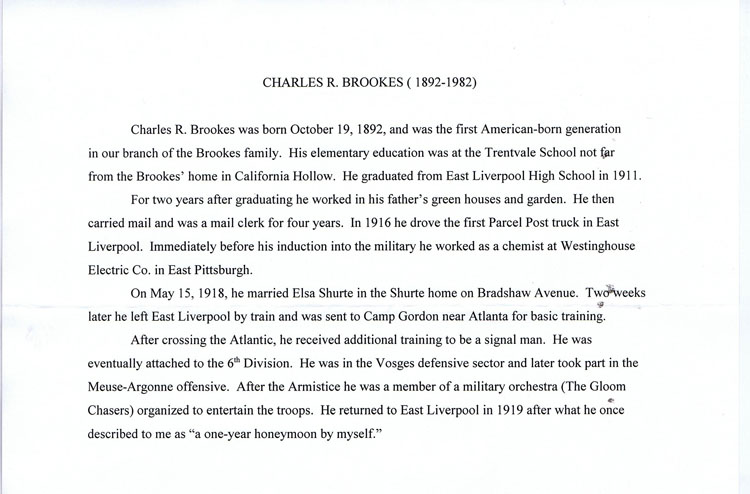

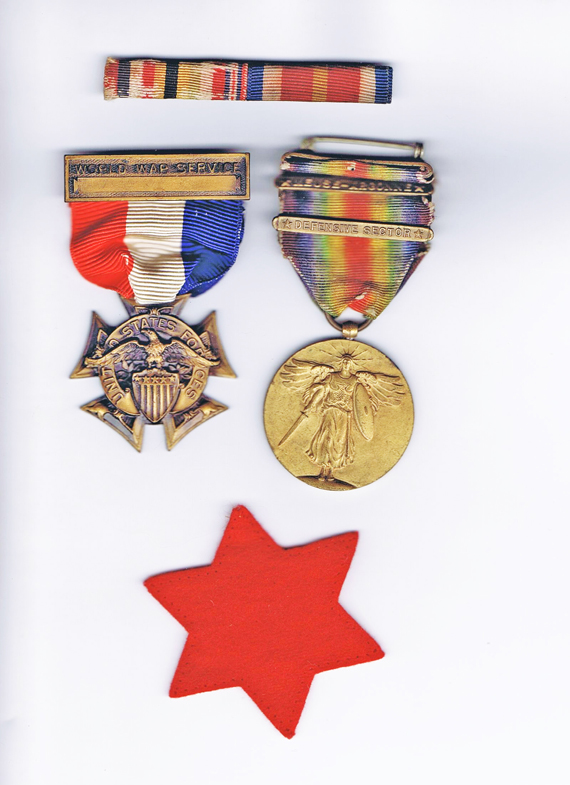
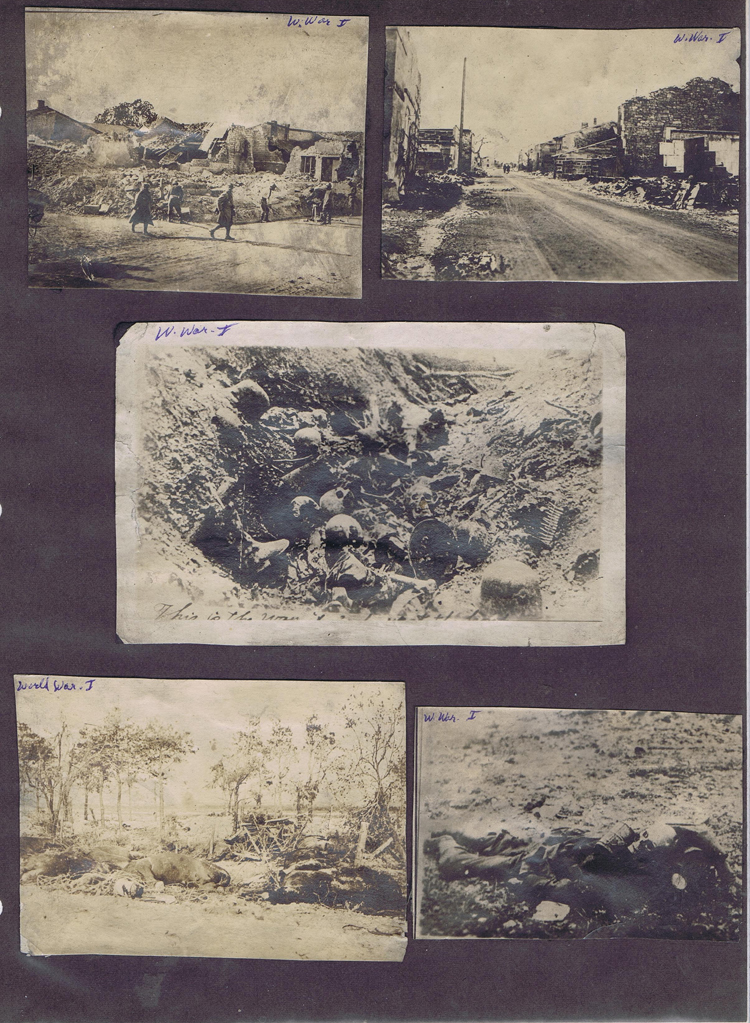
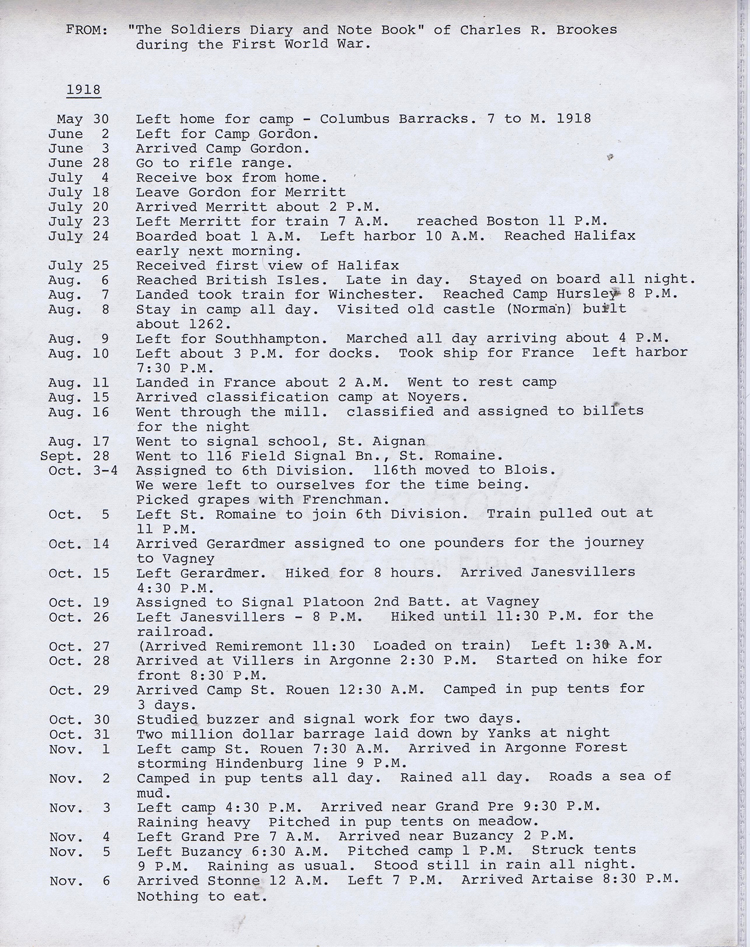
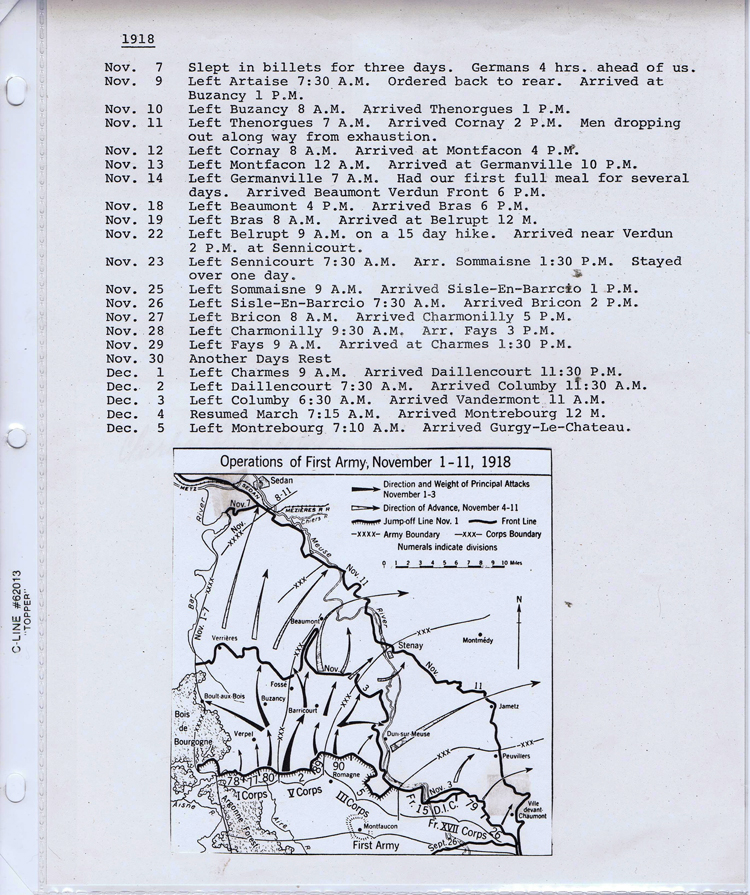
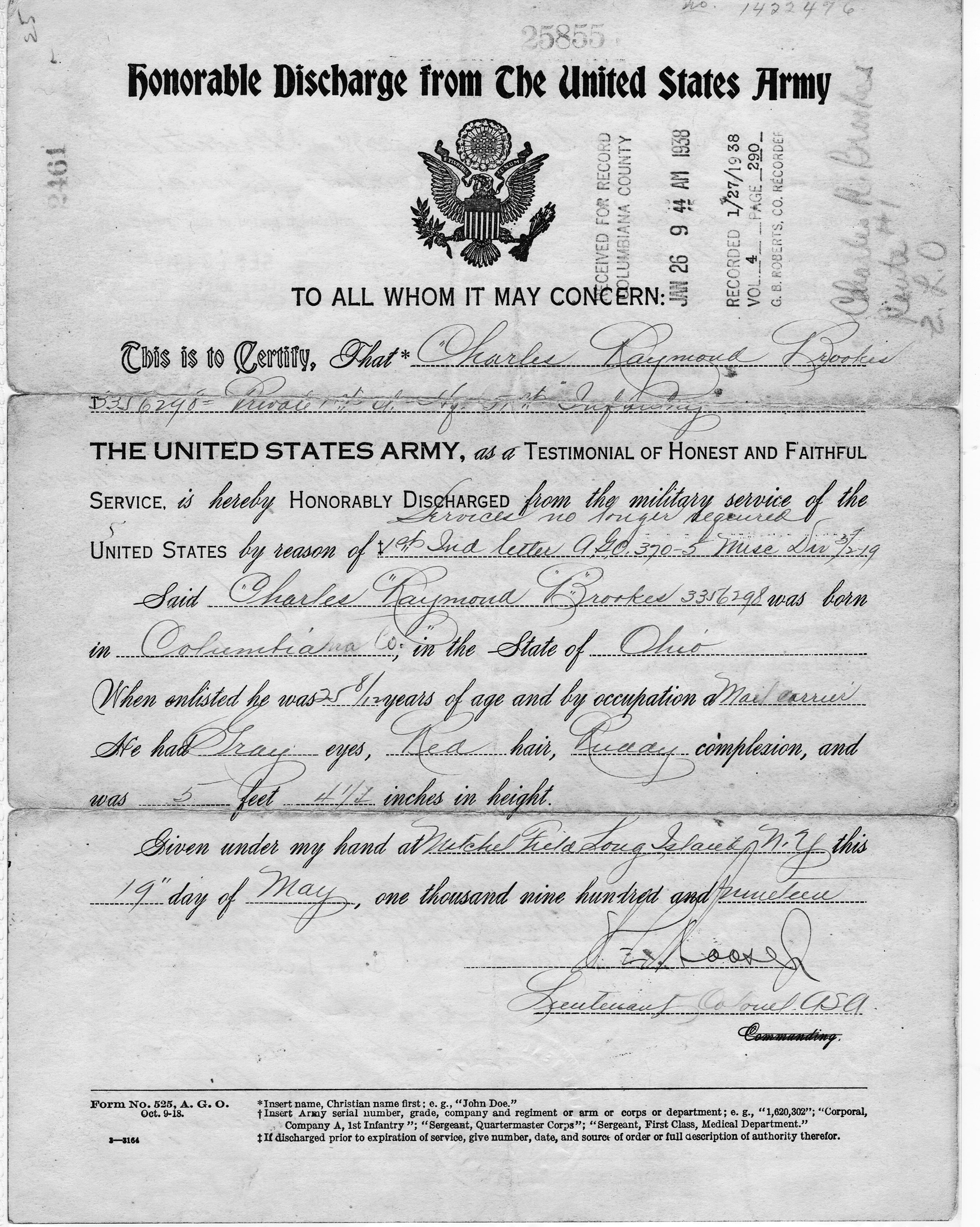
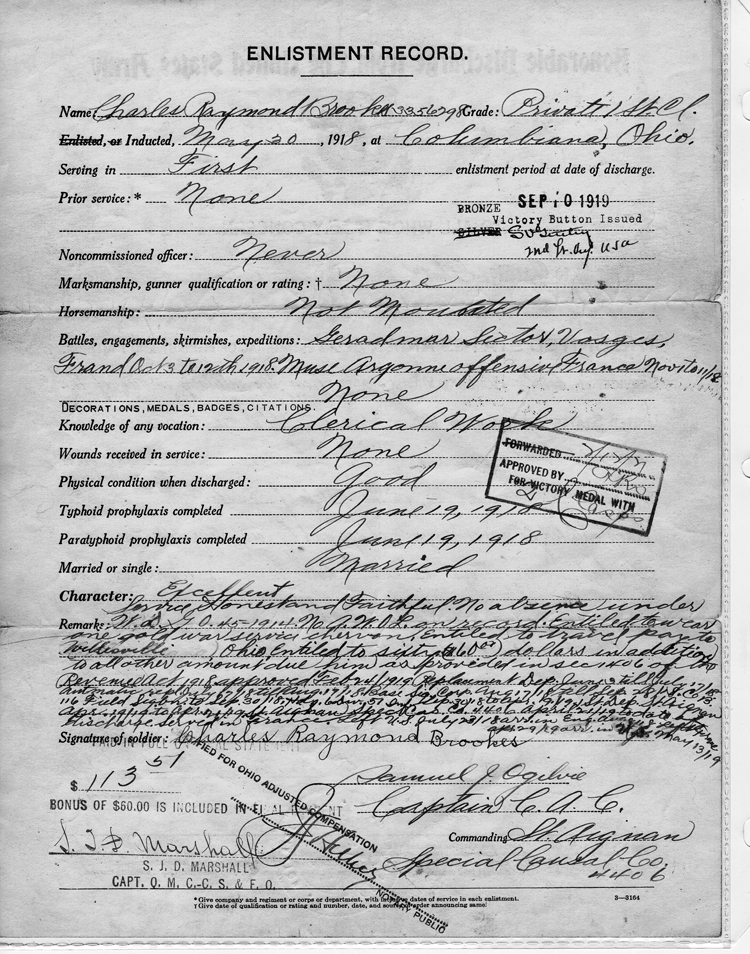
THE SINKING OF THE "TICONDEROGA"
http://www.eastliverpoolhistoricalsociety.org/sinkingticonderoga.htm
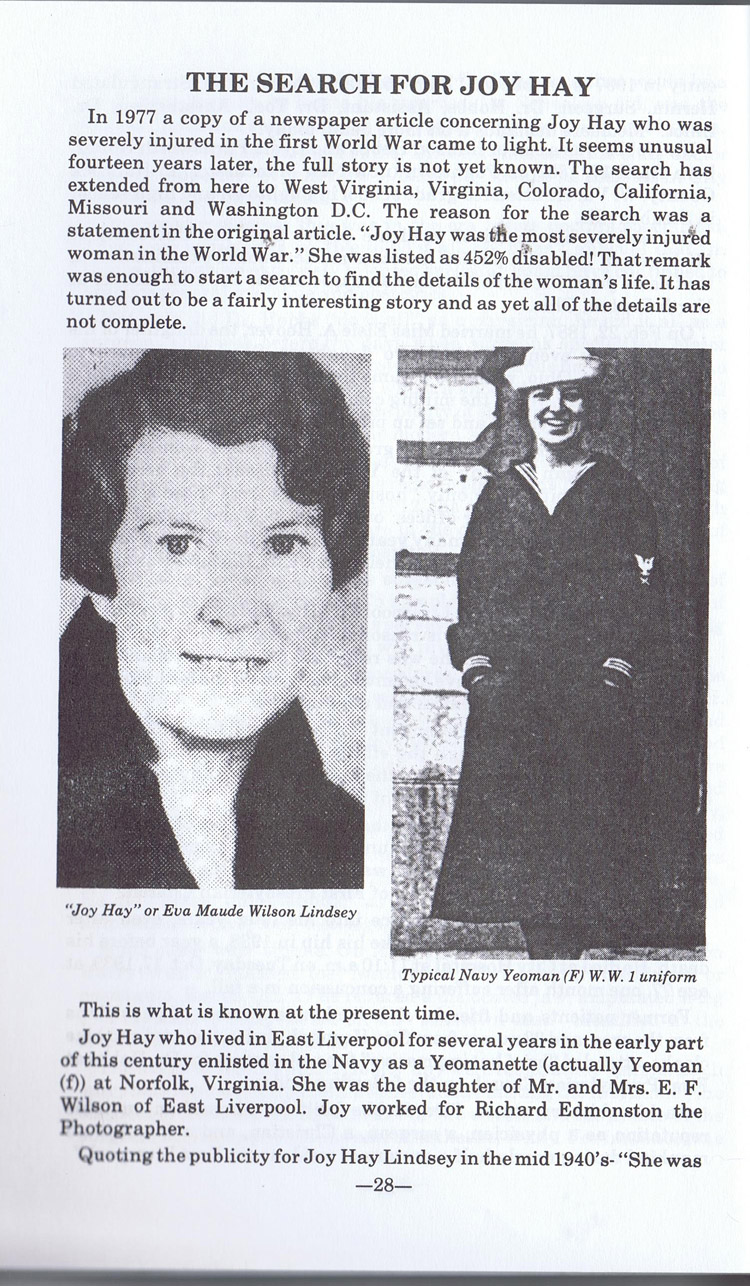
.jpg)
.jpg)
.jpg)
EAST LIVERPOOL AND WWII
If the Great Depression dominated local events during the 1930s, then World War II was the major factor of life during the following decade. Even before the attack on Pearl Harbor, East Liverpool was involved in the war effort. Reflecting the city's heritage, a British War Relief Society was organized in May of 1940. This group sponsored banquets and other fundraising activities in the city in order to send clothing, surgical dressings, and food to their beleagured homeland. They also undertook a program to provide temporary housing for English children in East Liverpool until the war ended. In July of 1941 they raised seventeen hundred dollars to purchase a "blitz" kitchen (a mobile canteen) for Liverpool, England. The local Red Cross chapter also participated by sending 263 articles of clothing to England in early 1941.55
When the United States became embroiled in the war, residents joined a number of organized programs to conserve materials used for military purposes. They accepted rationing and other changes in their everyday life in support of the nationwide effort. Over four thousand pounds of aluminum were collected in July of 1941 following an appeal to housewives for their pots and pans. Scrap drives for iron, paper, and rubber were conducted periodically. A scrap rubber drive in June of 1942 resulted in the collection of ninety tons, including seven hundred pounds from the floor mats of the Ceramic Theatre. Almost 480,000 pounds of metal was donated in August of 1942 when the former Sixth Street streetcar viaduct was razed. Victory Gardens were everywhere. Residents also complied, seemingly without complaint, with the rationing of tires, sugar, gasoline, and coffee. East Liverpool residents contributed millions of dollars through eight victory loan drives. During the fifth war loan drive in 1944 entertainment troupes, including military variety groups, appeared on the Diamond and at the Ceramic Theatre to stir up support for the effort. A demonstration of military equipment was given for sixty-five hundred people at Patterson Field in September of 1943. Wounded veterans urged the crowd to purchase more war bonds and a Stuart light tank crushed an old car to cap the demonstration. 56
Civilian Defense also became a concern for residents. The shock of Japan's sudden attack on the United States naval base at Pearl Harbor inspired the mayor to appoint a civilian defense council and to place guards twenty-four hours a day on the Chester Bridge to prevent sabotage. By December of 1941 an air raid siren had been placed atop the Crockery City Brewery building. On 27 December 1941 Pon Yee, who operated Pon's Photography Studio placed his photograph and an advertisement in the Review which stated in part: "A few folks have mistaken me for a Japanese - and believe me, I don't like it. I am an American citizen of Chinese extraction and I'm certainly strong for seeing that the Japs get the world's greatest licking." With anti-Japanese sentiment in the city already high because of imported dinnerware, Yee's apprehension was understandable. On 14 January 1942 Mayor Greenawalt organized a sixty-one man auxilliary police force for defense of the city. In the spring, city council passed a blackout ordinance with violators subject to fines of up to five hundred dollars and six months imprisonment; council organized 223 air raid wardens for the city.
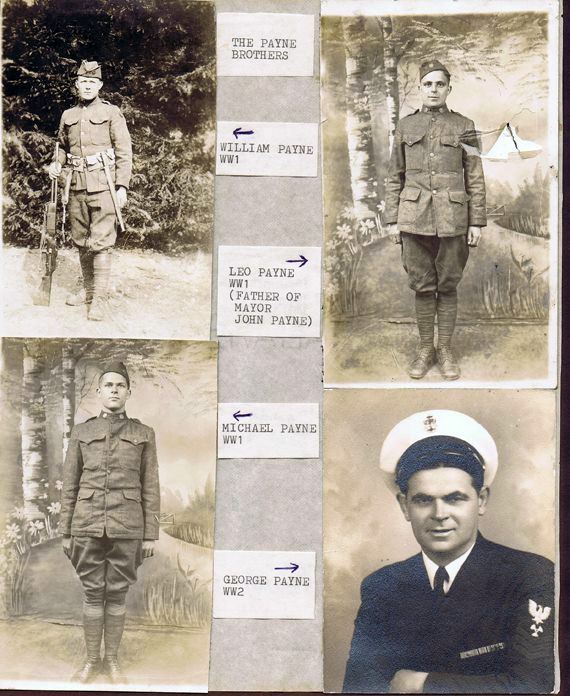
This becomes a bit of a transition since it spans the two World Wars.
WWII BIG BAND/SWING MUSIC
https://www.youtube.com/watch?v=cHcunREYzNY&list=PLB5527AFF1E45FFDB
Wartime Dancing (WWII)
https://www.youtube.com/watch?v=xS5oCLXrQLs
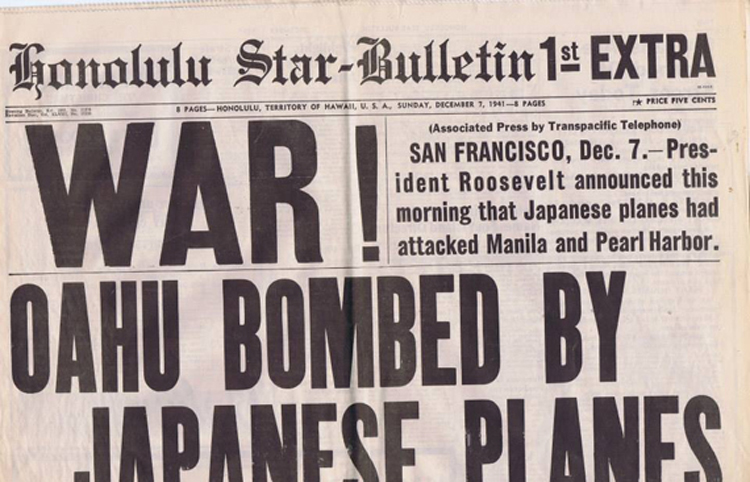
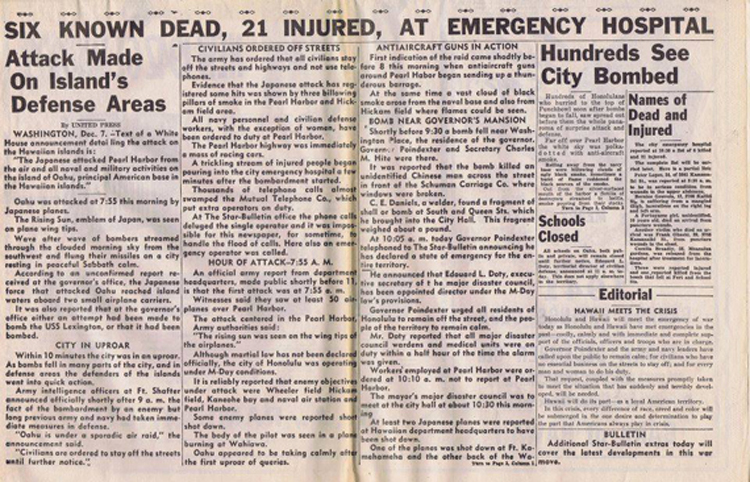
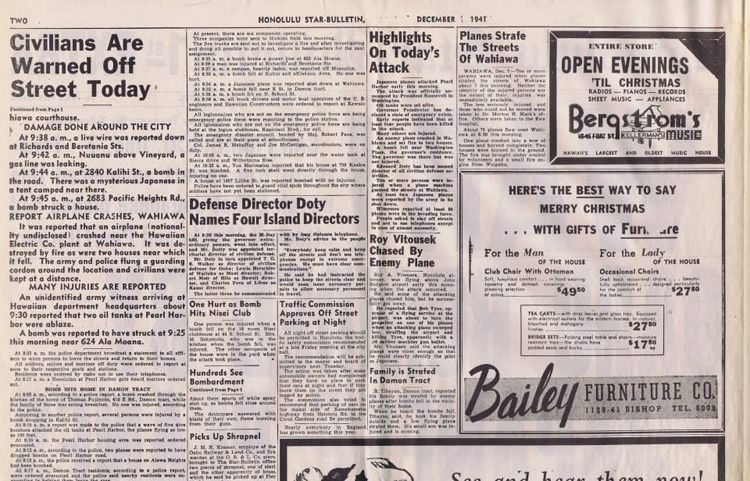
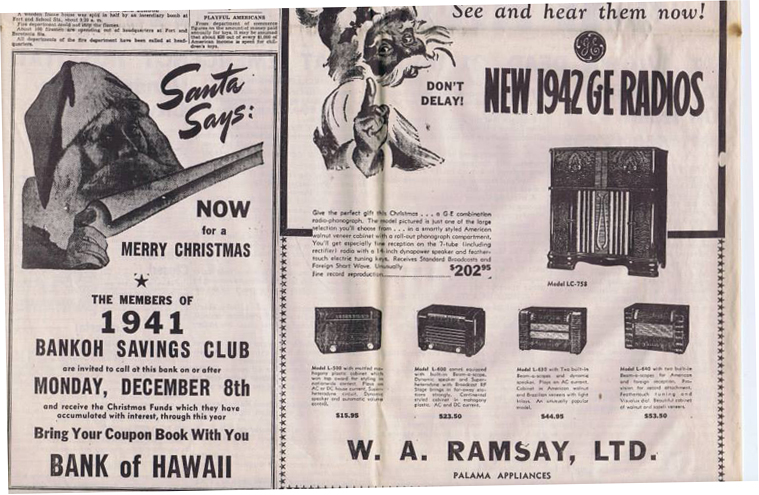

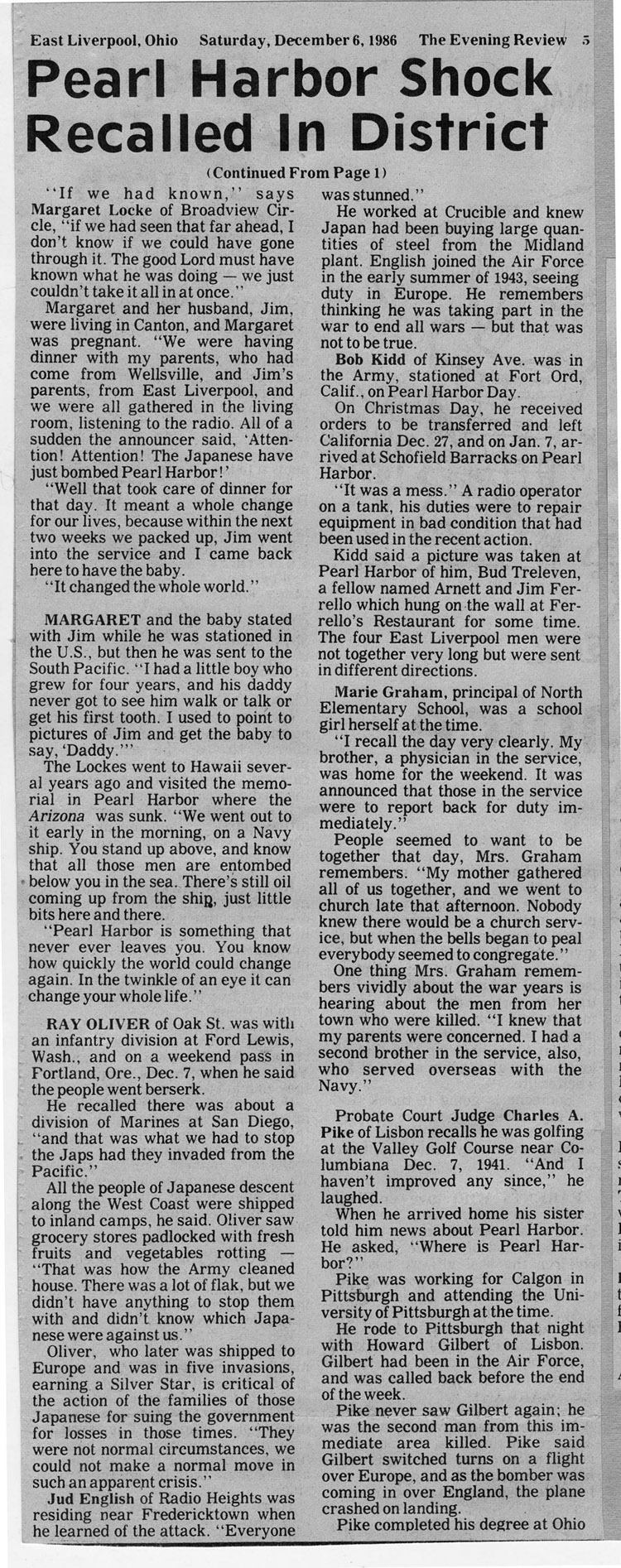
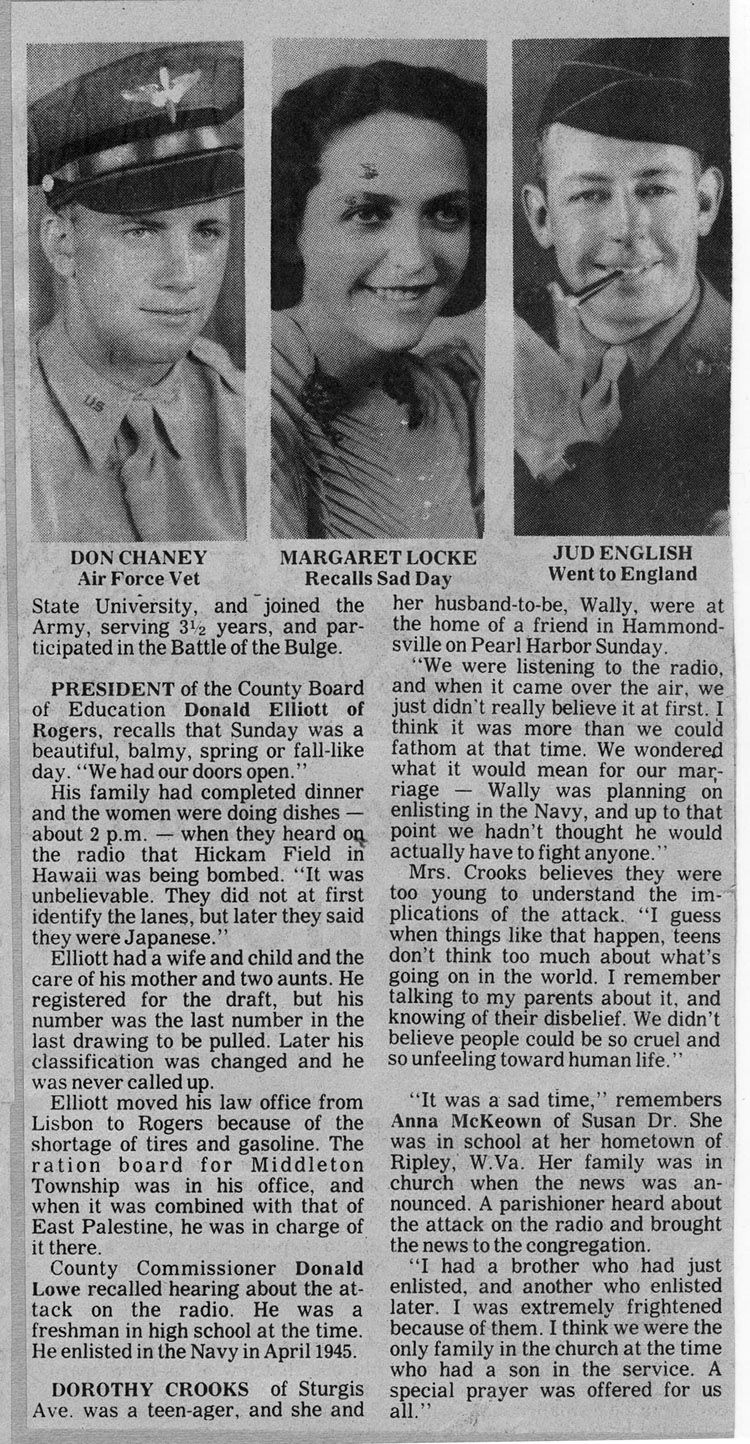
A VERY PERSONAL STORY
ELHS: This interview was conducted on Thursday afternoon, 3 April 2014. Mr. Del Cooper is a 93-year-old gentleman who was in the U. S. Army stationed on Oahu, Hawaii, December 7, 1941. Mr. Cooper is describing his experiences as the Japanese attacked Pearl Harbor 73 years ago this coming December. The interview was not long and in fact we had to do it twice because the recorder didn't the record 1st time. Mr. Cooper apologized for having forgotten so much but we personally think he did a pretty good job of remembering things of 73 years ago. World War II veterans are leaving us at a rapid rate and in a few years there will be none left. While this is a short interview it adds to the knowledge of that war for posterity. Mr. Cooper was assigned to an anti-aircraft unit. Ironic isn't it?
Mr. Cooper: I brought this map.
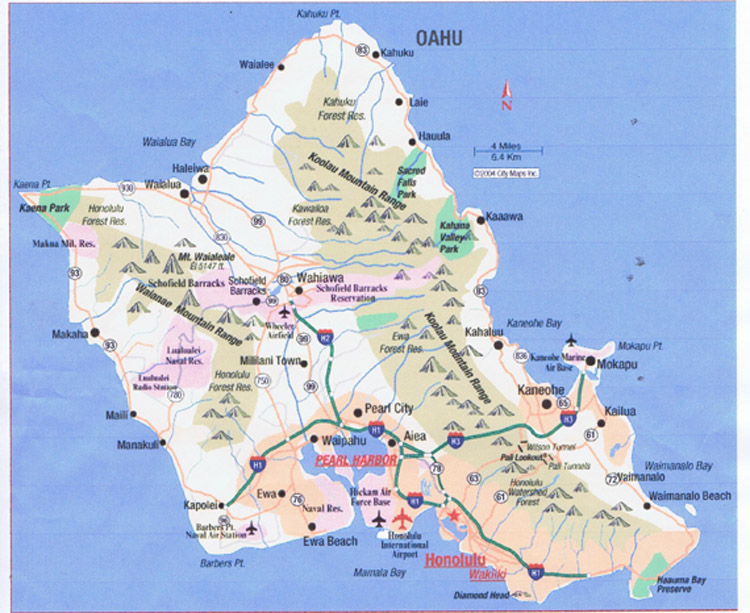
Mr. Cooper: The planes came overland up above where those mountain symbols are on the map. We were camping near Sheffield barracks. That would be the most logical way for the Japanese to come in because as you see from the map there was a mountain range there and that was where we were – on the other side of the mountain. So when they came through the pass that is where they made their right hand turn to go to the harbor for their bomb run.
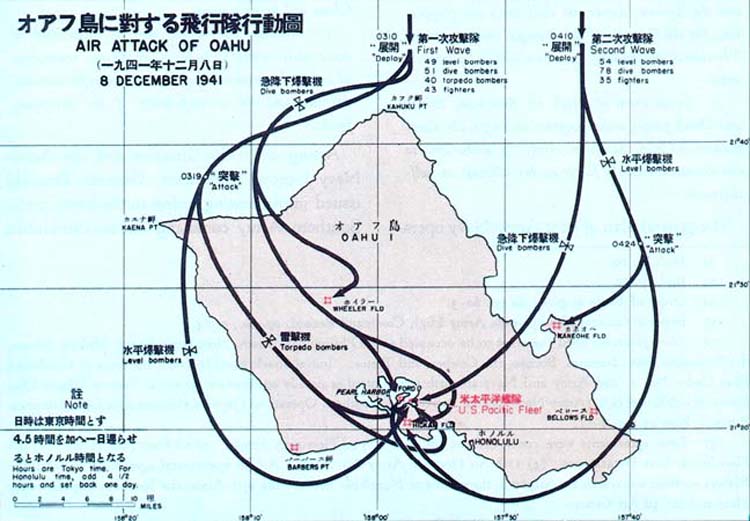
Mr. Cooper: I went in the service in 1941. I did my basic training in California. There were three months of that. In September 1941, we went to Hawaii. We had no guns that we could train on or use. The government couldn't afford to buy guns. We did have rifles, but no antiaircraft guns. When the Japs came over that morning our rifles had been locked up previously so we didn't even have rifles at that time. The guy in charge of that wouldn't unlock them because he was afraid they would take it out on him if we lost any of the rifles.
Mr. Cooper: When the Japs came over I was standing out in an open field washing my mess kit. I have been out there probably around 20 minutes. The planes came over and made their turn for the harbor to do their bomb run right over our camp. I stood there watching them as they were flying over. We didn't know why they were there or what they were doing. We thought they were on maneuvers or something. We thought it was some sort of training exercise. One thing we did notice was that they had this big insignia on the side of the plane which was a orange circle. That was Japanese which I didn't know at that time.
Mr. Cooper: Anyways, I stood there looking at them and as some flew over, they were looking at me. I could see them, they could see me. They were close enough I could see their teeth as they were laughing at me.
They shot at me when they were going over us in our camp. I'll never forget that. I was standing there and they were shooting at us – at me and I didn't even know it. I was standing there washing my mess kit not worrying about much of anything, especially not getting killed until my buddy in the tent area came running up to me yelling, "Del, Del, they shot the heel of my shoe off." I said, "Awwww, come on, knock that off because you know they couldn't with a wax bullet." We thought they were on maneuvers you see.
ELHS: that's what they used during maneuvers, wax bullets?
Mr. Cooper: Yes, usually.
ELHS: Well if one of those hit you, it would hurt too.
Mr. Cooper: Oh yeah. My buddy went down to where they shot at him and dug the bullet out of the ground and showed it to me. That's when we knew for sure it was a enemy. We were being attacked. It was probably half an hour before it was all over with. Then it was pretty safe at that time.
Mr. Copper: They went down past Wheeler Field which was where we were supposed to be. We were supposed to protect it. The planes at Wheeler Field were all lined up in neat rows for inspection that morning. So when the Japs came through they just riddled all the planes that were on the ground. The pilots and the mechanics, were in barracks right next to the field and the Japs riddled them – killed most of them. That was the 1st real death I had seen, when the Japs came over.

Mr. Cooper: I could see the effects they were having, the planes shot up and burning, the barracks and the dead pilots and crews. When they got to the harbor and released the bombs, we could hear the explosions, see the smoke rising, see fire off in the distance. It looked like the whole place was on fire.
Mr.Cooper: We could see them from our camp. There was smoke everywhere and it seemed like every few minutes there would be a big ball of fire and smoke. We could hear the explosions. We were seeing and hearing the results of their bombing. I didn't see the planes after they left our camp but I could see all the effects of what they were doing at Wheeler Field and the harbor area.
Mr.Cooper: Another field, Hickam Field, was another airbase. They were eating breakfast that morning in a 2 or 3 story building when the Japs bombed it. They got most of all of the men in the building on the upper floor. Eventually the building collapsed. When the men tried to go to cover, you could see where they were running down the runway and the Japs would just catch them with their planes – just catch them as they were running and they would shoot them down. A lot of them were killed that way.
ELHS: There was a second wave that day, a second attack.
Mr. Cooper: Yes. Between attacks we finally got to the armory and to speed things up they ripped the sides of building open and they just lined trucks up to load them with rifles and ammo. Those trucks were just lined up clear around the building and we were inside with the weapons and 5-inch ammo passing it out, loading the trucks and then the second attack began and the Japs were flying over again. I was really worried about that. Before when I didn't know what was happening, I could stand out there in the field washing mess kits and not worrying a thing about it.
ELHS: Well, they do say ignorance is bliss.
Mr. Cooper: Isn't that true! And I was young too. I didn't worry about anything back then. I was over there in Hawaii for 4 years. After the attack we finally got our guns. They went down to the Oklahoma, they took blowtorches and cut 5 inch antiaircraft guns off the ship and made a gun emplacement for us. I was supposed to go to Saipan [when they were getting ready to invade Saipan]. But they found out the weight of our guns were too heavy for where we had to land and we wouldn't be able to orient them – which was fine with me. I was in Hawaii and there was no one shooting at me there. In fact, when we first got our gun emplacements set up on Hawaii, to learn to use and train with, they had two Navy chiefs who taught us how to work those Navy 5-inch antiaircraft guns. They had been on board one of the ships that was sunk and they were knocked overboard or jumped overboard and were in the water when it was oil covered and burning. They had been trained to swim and while swimming throw their arms and hands out in a way so they could get air and keep the flames away from them. They were about the middle of the harbor and they swam all the way to shore. Those 2 guys lived. That was a real story they had to tell. There is so many things I have forgotten. I appreciate you coming anyway.
ELHS: I am glad to be here and this is extremely interesting. So you and your wife have been married for 60 some years?
Mr. Cooper: Yes, 69 years.
ELHS: You met her before you went the Army and she waited all 4 years for you while you were in Hawaii?
Mr. Cooper: Yes, quite a woman.
ELHS: Did you have any kids?
Mr. Cooper: We adopted 2 children.
ELHS: Do they live locally?
Dr. Cooper: Yes my son has Cooper Autobody and my daughter lives in Florida. She works for Acorn Stair Climber Company. They make things go down the stairs electrically.
ELHS: She had a pretty nice winter unlike us .
Mr. Cooper: Yes she did. My son is 57, 58 July. We got both our son and our daughter as babies right out of the hospital. It was the best thing that ever happened to us.
ELHS: so you could say you saw the entire war from Hawaii since everything headed out there on its way into the war?
Mr. Cooper: Grandstand seats. I got in the war little bit.
ELHS: That was enough.
Mr. Cooper: Yes, that was enough. I didn't care much for it. I just wish my memories were better. I think if I am right it's been 73 years – if I am right, 1941 to today. Hawaii was nice but I was glad to finally get back home.
Your memory was just fine and your math was better than mine.
CONTINUE TO Our Military Heritage 4
This site is the property of the East Liverpool Historical Society.
Regular linking, i.e. providing the URL of the East Liverpool Historical Society web site for viewers to click on and be taken to the East Liverpool Historical Society entry portal or to any specific article on the website is legally permitted.
Hyperlinking, or as it is also called framing, without permission is not permitted.
Legally speaking framing is still in a murky area of the law though there have been court cases in which framing has been seen as violation of copyright law. Many cases that were taken to court ended up settling out-of-court with the one doing the framing agreeing to cease framing and to just use a regular link to the other site.
The East Liverpool Historical Society pays fees to keep their site online. A person framing the Society site is effectively presenting the entire East Liverpool Historical Society web site as his own site and doing it at no cost to himself, i.e. stealing the site.
The East Liverpool Historical Society reserves the right to charge such an individual a fee for the use of the Society’s material.